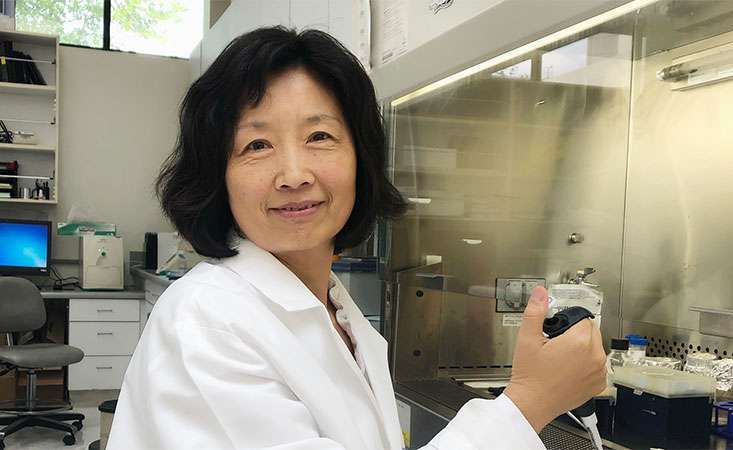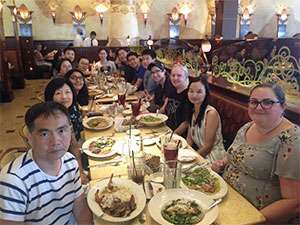
Yuan Chen, PhD, is both a pancreatic cancer researcher and a caregiver for her mother, who was diagnosed with the disease in 2017.
Editor’s note: We recently announced the recipients of our 2019 research grants, awarded through a competitive, peer-review process. Now we’d like to introduce you to each investigator and share what drives them to work in the pancreatic cancer field.
Editor’s note: Shortly after receiving her PanCAN grant, Dr. Chen was appointed professor of surgery at University of California, San Diego.
In 2017, Yuan Chen, PhD, found out her mother had been diagnosed with pancreatic cancer.
“Taking care of her and going to medical appointments with her have given me a completely new perspective on the challenges that patients and healthcare professionals are facing,” said Chen, who is dean of transdisciplinary research and a professor in the department of molecular medicine at the Beckman Research Institute of the City of Hope.
“This experience also inspired me to explore new potential drug targets and biological mechanisms to make a difference in pancreatic cancer therapy.”
Chen decided to take her advocacy for her mother to a professional level. She established a focused discussion group, composed of a multidisciplinary team of scientific and clinical experts at City of Hope, to meet regularly with the goal to promote innovation and collaboration to advance the field. The discussion group serves as a platform for information exchange and the development of better new ideas on pancreatic cancer research and clinical trials than are possible by a single investigator.
“Through these discussions and new collaborations formed in the group, I came up with an idea for a project focused on improving treatment options for pancreatic cancer patients,” Chen said.
The idea became the basis for a Pancreatic Cancer Action Network (PanCAN) Translational Research Grant application that was selected for funding this year.
She continued, “As a scientist, once we have a new idea, we have to find funding support. This grant allows us to explore a new direction that would not be possible without it.”

Chen, left row, second from front, enjoys dining out with the members of her lab.
Through her PanCAN grant, Chen is investigating an immunotherapy approach aiming to weaken and decrease the number of immune cells that protect the tumor, while enhancing the activity of immune cells that can recognize, attack and destroy cancer cells.
And Chen wasn’t the only scientist to benefit from the newly formed, highly-collaborative discussion group at City of Hope. Her colleague, Yilun Liu, PhD, also took an idea formulated within the group to apply for and receive a PanCAN grant. “We are the first two investigators at our institution to be awarded PanCAN research grants,” Chen noted with great pride.
Speaking to donors and supporters who have allowed Chen, Liu and other grant recipients to pursue their scientific endeavors, Chen said, “I thank them for their contributions to humanity and for enabling the advancement of new knowledge and new therapies.”
As someone who works extremely hard in the lab and perhaps even harder as a caregiver for her mother (not to mention her other roles as a mom, wife and more), Chen finds inspiration from many people in her life.
“Many people around me inspire me: my mother, not only as a pancreatic cancer patient, but also as an educator who cared deeply about her students and loves learning; my father, for being optimistic when facing adversity; my children, for their adventurousness and for broadening my perspectives; my husband, for his wonderful kindness; and many of my colleagues, for their hard work, great ideas and collaboration.”
Reflecting back to the moment her mother was diagnosed with pancreatic cancer, Chen said, “It was the moment I realized what the poor outcome with current pancreatic cancer treatment really means.
“The challenges that patients and doctors face for this disease became ‘real’ and not just a number on paper. It was also the moment I started to think about what I can do as a scientist and scientific leader to help advance the field.”





